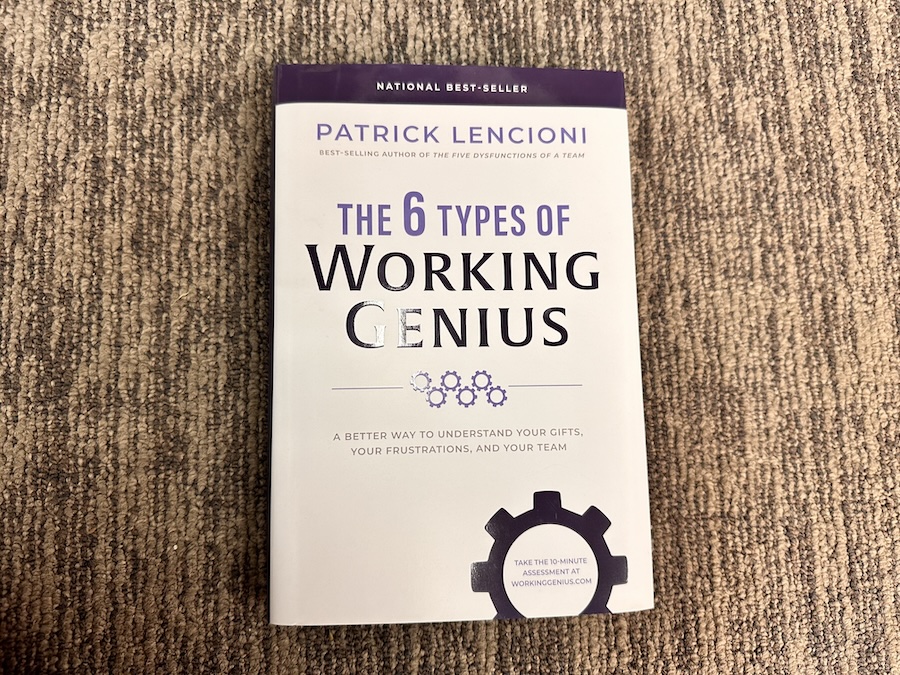The Six Types of Working Geniues Explained

"The Six Types of Working Genius" by Patrick Lencioni introduces a model to help people identify their natural talents and work preferences. The key points of the book are:
The Six Types of Genius
Lencioni outlines six types of "working genius":
1. Wonder - Pondering possibilities and asking insightful questions
2. Invention - Creating novel ideas and solutions
3. Discernment - Intuitively evaluating ideas and situations
4. Galvanizing - Rallying people to take action
5. Enablement - Providing support and assistance
6. Tenacity - Pushing projects through to completion
Individual Genius Profile
According to the model, each person typically has:
- 2 areas of genius (natural talents that energize them)
- 2 areas of competence (can do adequately but don't love)
- 2 areas of frustration (drain energy and lead to burnout)
Team Dynamics
The model aims to help teams:
- Identify collective strengths and gaps
- Assign work based on natural talents
- Improve collaboration and productivity
- Reduce unnecessary judgment of others
Work Phases
The geniuses align with three phases of work:
1. Ideation (Wonder, Invention)
2. Activation (Discernment, Galvanizing)
3. Implementation (Enablement, Tenacity)
Application
Lencioni presents the model through a business fable and provides an assessment tool to help individuals and teams apply the concepts. The goal is to increase job satisfaction, productivity, and team effectiveness by aligning work with natural talents[1][2][4].
While some view it as insightful, others consider it another personality framework akin to corporate astrology. The book's effectiveness likely depends on how it's applied in practice.
The Six Types of Genius
Lencioni outlines six types of "working genius":
1. Wonder - Pondering possibilities and asking insightful questions
2. Invention - Creating novel ideas and solutions
3. Discernment - Intuitively evaluating ideas and situations
4. Galvanizing - Rallying people to take action
5. Enablement - Providing support and assistance
6. Tenacity - Pushing projects through to completion
Individual Genius Profile
According to the model, each person typically has:
- 2 areas of genius (natural talents that energize them)
- 2 areas of competence (can do adequately but don't love)
- 2 areas of frustration (drain energy and lead to burnout)
Team Dynamics
The model aims to help teams:
- Identify collective strengths and gaps
- Assign work based on natural talents
- Improve collaboration and productivity
- Reduce unnecessary judgment of others
Work Phases
The geniuses align with three phases of work:
1. Ideation (Wonder, Invention)
2. Activation (Discernment, Galvanizing)
3. Implementation (Enablement, Tenacity)
Application
Lencioni presents the model through a business fable and provides an assessment tool to help individuals and teams apply the concepts. The goal is to increase job satisfaction, productivity, and team effectiveness by aligning work with natural talents[1][2][4].
While some view it as insightful, others consider it another personality framework akin to corporate astrology. The book's effectiveness likely depends on how it's applied in practice.

